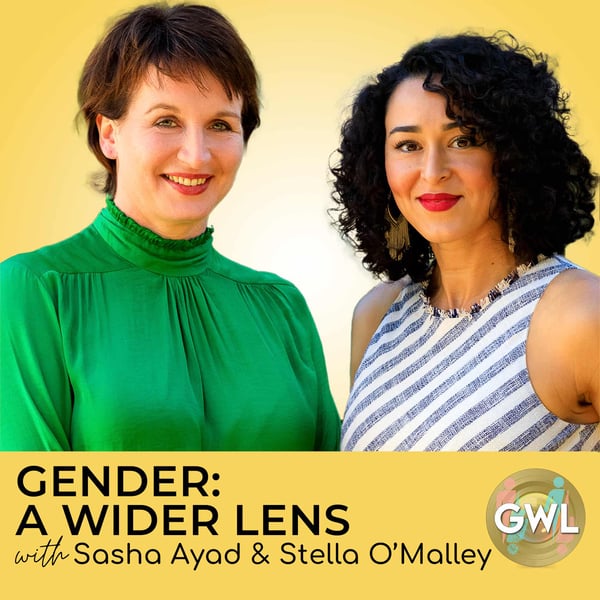52 - Gender Dysphoria & Detransition Research: A Conversation W/ Dr. Lisa Littman
Gender: A Wider Lens
Sasha Ayad and Stella O'Malley
4.6 • 961 Ratings
🗓️ 3 December 2021
⏱️ 63 minutes
🧾️ Download transcript
Summary
Dr. Lisa Littman coined Rapid Onset Gender Dysphoria (ROGD) in her seminal 2018 parental report survey. ROGD is a descriptive term for the phenomenon of young people suddenly announcing a transgender identity and experiencing gender dysphoria for the first time around adolescence. Dr. Littman’s latest ground-breaking study on the experience of 100 detransitioners was published in the last few weeks and we reflect on some of the most astonishing findings. In this conversation, Lisa also reflects on what she’s learned since getting embroiled in a controversy she wasn’t expecting. She shares some possible reasons why the topic of affirmative medical care has become so polarized. Lisa points out that patients get hurt when clinicians pledge an allegiance to a particular approach rather than prioritizing the well-being of dysphoric people.
Links:
Dr. Littman’s Website:
Interview in Quillette: Quillette.com/2019/03/19/an-interview-with-lisa-littman-who-coined-the-term-rapid-onset-gender-dysphoria
Extended Notes:
- Why has Dr. Lisa’s study on detransitioners received so much controversy? Dr. Lisa shares how she now feels about this.
- There are a lot of ways to support people who are transgender but fast-tracking access to hormones in an effort to support transgender people, regardless if it’s more beneficial, is transphobic.
- Dr. Lisa shares a bit about her background and what led her to the detransitioner’s study.
- There are parents who believe transition will help their children and there are parents who don’t. We need to understand that they just want to help their children and there are multiple ways to do that.
- Dr. Lisa shares further how her study was not accepted. She recruited respondents on social media where they orchestrated an event that undermined her data.
- Dr. Lisa defines further what detransitioning means as this area of research is still early.
- Affirmative model vs. exploratory model. The latter tries to understand why you are gender dysphoric whereas the former immediately concludes that you should transition.
- Mental health conditions don’t have a targeted fix.
- Psychosocial factors could contribute to the development of gender dysphoria.
- Dr. Lisa also shares the effects of social influence such as pressure from a person, a group of people, or society on the interpretation of one’s own feelings. Can this lead to a misdiagnosis?
- There are a variety of ways people can live their lives and they cannot solely be defined by rigid gender roles and stereotypes.
- Language can be very powerful and if it was used in a way that doesn’t confine people’s feelings to a specific label, it wouldn’t create such a problem.
- Where are the differences between male and female detransitions? Dr. Lisa explains further.
- Stella concurs that if a detransition was because the person was more comfortable with their biological sex, this could have been avoided through a proper approach during therapy.
- Exploring discomfort around sexual orientation would be a great place for trans therapists to help their patients.
This is a public episode. If you’d like to discuss this with other subscribers or get access to bonus episodes, visit www.widerlenspod.com/subscribe
Transcript
Click on a timestamp to play from that location
| 0:00.0 | You're listening to gender, a wider lens. |
| 0:04.0 | I'm Stella O'Malley, a psychotherapist in Ireland. |
| 0:06.5 | And I'm Sasha Ayad, an adolescent therapist in the United States. |
| 0:10.6 | Since 2016, my practice has been exclusively dedicated to gender questioning teens |
| 0:16.1 | and families impacted by gender dysphoria. I also work with gender questioning |
| 0:20.7 | teenagers and I facilitated support meetings for families and |
| 0:24.2 | individuals who have been impacted by gender issues. We're curious about the |
| 0:28.1 | concept of gender and how it's unfolding in the wider culture. Join us as we look at gender through a wider lens. |
| 0:37.6 | Lisa Littman is a physician researcher |
| 0:39.7 | who is trained in preventative medicine and public health and in obstetrics and |
| 0:44.2 | gynecology. Her experience providing reproductive health care to teens and |
| 0:48.6 | women and her public health training informed her research about gender dysphoria, desistance, and a transition. |
| 0:56.0 | The findings of her 2018 Parental Reports publication about rapid onset gender dysphoriaoria or ROGD generated some hypotheses about the potential |
| 1:06.8 | role that psycho social factors play in the development of gender dysphoria. |
| 1:12.1 | Dr Littman is currently the President and Director of the Institute for Comprehensive |
| 1:16.8 | Gender Dysphoria Research and serves on advisory boards of Gen Spect and the Gender Dysphoria Alliance. |
| 1:24.0 | Previously, she has held academic positions at the Brown University School of Public Health |
| 1:29.0 | and the ICON School of Medicine at Mount Sinai. |
| 1:32.0 | Today we talked to Lisa about her latest |
| 1:34.7 | groundbreaking study on the experience of 100 D transitioners which was just |
| 1:39.3 | published in the last several weeks. We talked about some of the most astonishing findings there and |
| 1:44.7 | Lisa also reflects on what she's learned since getting embroiled in a |
... |
Please login to see the full transcript.
Disclaimer: The podcast and artwork embedded on this page are from Sasha Ayad and Stella O'Malley, and are the property of its owner and not affiliated with or endorsed by Tapesearch.
Generated transcripts are the property of Sasha Ayad and Stella O'Malley and are distributed freely under the Fair Use doctrine. Transcripts generated by Tapesearch are not guaranteed to be accurate.
Copyright © Tapesearch 2025.

